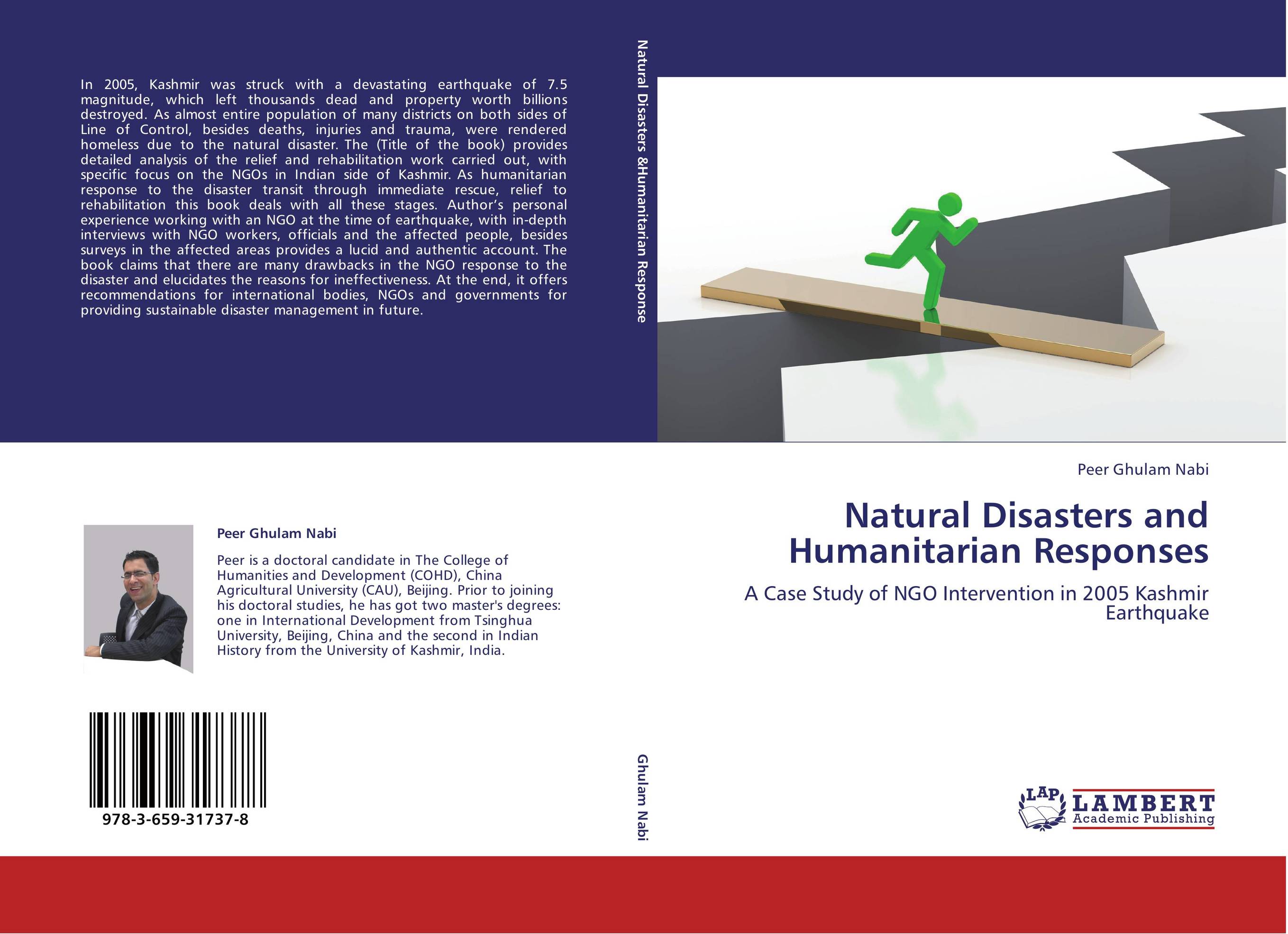| Поиск по каталогу |
|
(строгое соответствие)
|
- Профессиональная
- Научно-популярная
- Художественная
- Публицистика
- Детская
- Искусство
- Хобби, семья, дом
- Спорт
- Путеводители
- Блокноты, тетради, открытки
Natural Disasters and Humanitarian Responses. A Case Study of NGO Intervention in 2005 Kashmir Earthquake

В наличии
| Местонахождение: Алматы | Состояние экземпляра: новый |

Бумажная
версия
версия
Автор: Peer Ghulam Nabi
ISBN: 9783659317378
Год издания: 2013
Формат книги: 60×90/16 (145×215 мм)
Количество страниц: 116
Издательство: LAP LAMBERT Academic Publishing
Цена: 31779 тг
Положить в корзину
| Способы доставки в город Алматы * комплектация (срок до отгрузки) не более 2 рабочих дней |
| Самовывоз из города Алматы (пункты самовывоза партнёра CDEK) |
| Курьерская доставка CDEK из города Москва |
| Доставка Почтой России из города Москва |
Аннотация: In 2005, Kashmir was struck with a devastating earthquake of 7.5 magnitude, which left thousands dead and property worth billions destroyed. As almost entire population of many districts on both sides of Line of Control, besides deaths, injuries and trauma, were rendered homeless due to the natural disaster. The (Title of the book) provides detailed analysis of the relief and rehabilitation work carried out, with specific focus on the NGOs in Indian side of Kashmir. As humanitarian response to the disaster transit through immediate rescue, relief to rehabilitation this book deals with all these stages. Author’s personal experience working with an NGO at the time of earthquake, with in-depth interviews with NGO workers, officials and the affected people, besides surveys in the affected areas provides a lucid and authentic account. The book claims that there are many drawbacks in the NGO response to the disaster and elucidates the reasons for ineffectiveness. At the end, it offers recommendations for international bodies, NGOs and governments for providing sustainable disaster management in future.
Ключевые слова: India, Effectiveness, Kashmir, natural disasters, Humanitarian Response, Role of NGOs



